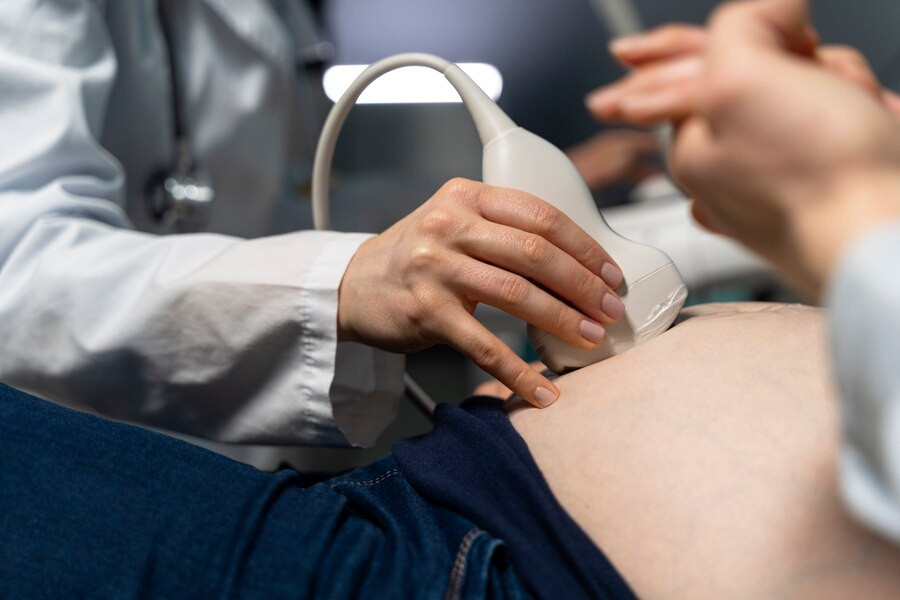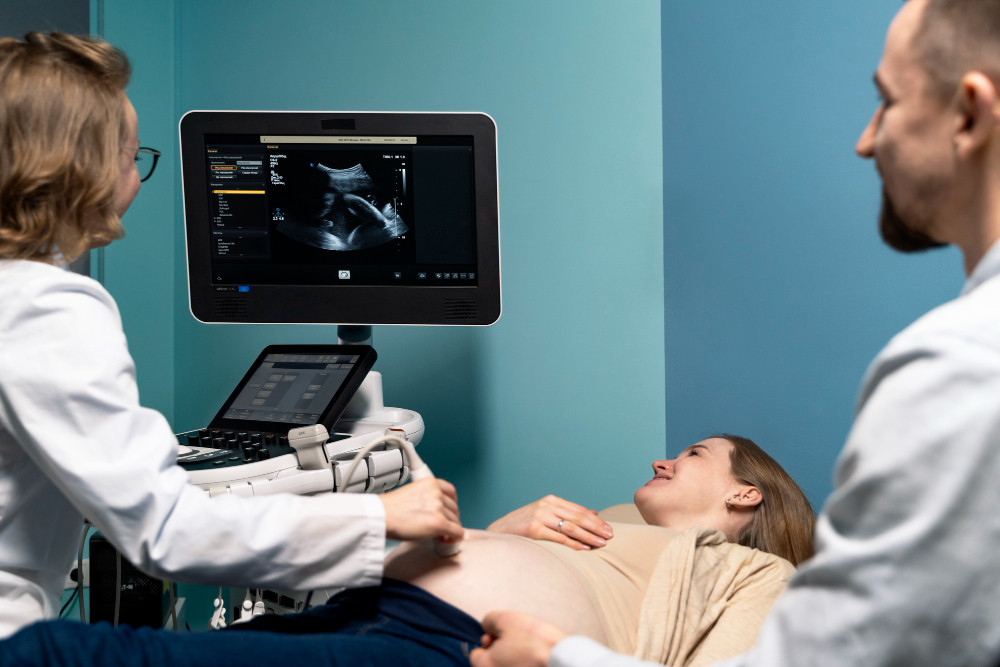Ultrasound examination is a critical component of the standard pregnancy examination. Doctors can monitor the development of prenatal organs, determine whether the fetus is growing in accordance with the estimated gestational age, identify potential pregnancy problems immediately, and provide care that is appropriate for the baby or pregnant woman through routine ultrasound examinations.
Find out when an ultrasound examination is required during pregnancy.
Recommended ultrasound examination schedule
From the moment the self pregnancy test results are known, pregnant women must follow regular pregnancy check-ups. Regarding every standard pregnancy check-up, you also should do an ultrasound.
The following are general recommendations for a pregnant ultrasonic examination schedule:
1st–12th weeks of pregnancy
Transvaginal ultrasound is typically conducted throughout the initial trimester of pregnancy, particularly between the early weeks up until the 12th week. This is a transvaginal ultrasound, which involves the insertion of a wand-like ultrasound instrument into the vagina.
An early transvaginal ultrasound is necessary to confirm a pregnancy, identify gestational age with greater accuracy, monitor the heart rate of the baby in the early stages, and detect disorders like placenta previa or other reproductive organ abnormalities.
11th-13th weeks of pregnancy
A nuchal translucency examination is required for expectant women between the 11th and 13th weeks of pregnancy. The fetus's back of the neck typically contains a small volume of fluid, and this examination is conducted using abdominal ultrasound (stomach). This examination can evaluate the risk of Down syndrome or other genetic disorders.
18th–22nd weeks of pregnancy
An anatomical ultrasound is conducted between 18 and 22 weeks of gestation. It is crucial to perform this examination in order to determine the fetus's physical development and identify any significant anatomical defects that may be present.
The use of 4D ultrasound technology allows for more detailed pictures of the developing baby inside the mother's womb during this type of ultrasound. The doctor can check that the fetus's development is normal for its gestational age by taking precise measurements from head to toe.
32nd-36th pregnancy
An ultrasound is necessary during the third trimester of pregnancy, specifically between the 32nd and 36th weeks. This procedure provides multiple purposes, including evaluating the size and growth of the fetus, determining its position within the uterus, evaluating the placenta and amniotic fluid, and helping in preparations for delivery.
There is a possibility that you might need additional ultrasound tests, particularly if there are medical indications or concerns regarding the health of the baby or the pregnancy.
Research finds that pregnancy ultrasounds are not harmful to either the pregnant mother or the baby. The technology of ultrasound is always evolving, and its primary purpose is to protect both the mother and the fetus. It is also important that you do not hesitate to check on your pregnancy frequently and to discuss it with your doctor if you have any concerns or questions regarding your pregnancy.
If you need medical advice or consultation, you can either visit a doctor or make use of the consultation features that are available in the Ai Care application by downloading the Ai Care application from the App Store or Play Store.
Looking for more information about pregnancy, breastfeeding, and the health of women and children? Click here!
- dr. Alvidiani Agustina Damanik
Pregnancy Birth&Baby (2023). Ultrasound scans during pregnancy. Available from: https://www.pregnancybirthbaby.org.au/ultrasound-scan
Cleveland Clinic (2022). Ultrasound in Pregnancy. Available from: https://my.clevelandclinic.org/health/diagnostics/9704-ultrasound-in-pregnancy
Katherine Kam (2023). How Often Do I Need Prenatal Visits?. Available from: https://www.webmd.com/baby/how-often-do-i-need-prenatal-visits
Cleveland Clinic (2022). Transvaginal Ultrasound. Available from: https://my.clevelandclinic.org/health/diagnostics/4993-transvaginal-ultrasound
Stanford Medicine. Ultrasound in Pregnancy. Available from: https://www.stanfordchildrens.org/en/topic/default?id=ultrasound-in-pregnancy-90-P02506
American College of Obstetricians and Gynecologist (2024). Ultrasound Exams. Available from: https://www.acog.org/womens-health/faqs/ultrasound-exams
Cleveland Clinic (2022). Nuchal Translucency. Available from: https://my.clevelandclinic.org/health/diagnostics/23333-nuchal-translucency
Cleveland Clinic (2022). 20-Week Ultrasound (Anatomy Scan). Available from: https://my.clevelandclinic.org/health/diagnostics/22644-20-week-ultrasound
Harold Gomez Avecedo, et all (2023). Sonography 3rd Trimester and Placenta Assessment, Protocols, and Interpretation. Available from: https://www.ncbi.nlm.nih.gov/books/NBK572062/










